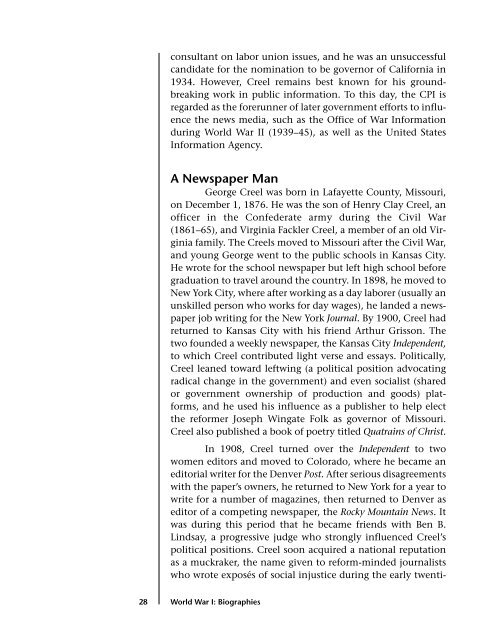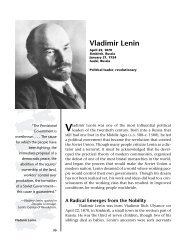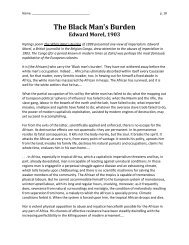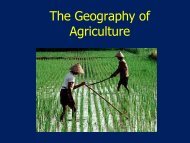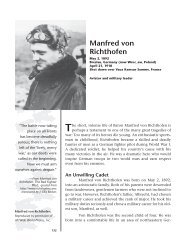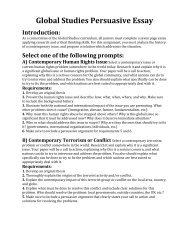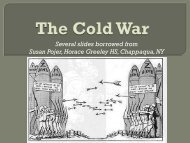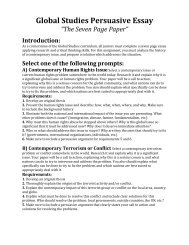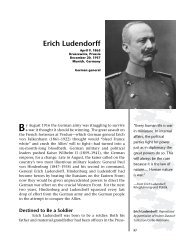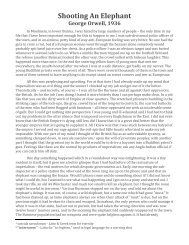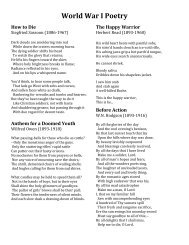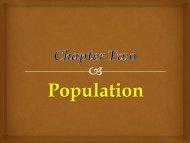George Creel
George Creel
George Creel
You also want an ePaper? Increase the reach of your titles
YUMPU automatically turns print PDFs into web optimized ePapers that Google loves.
consultant on labor union issues, and he was an unsuccessful<br />
candidate for the nomination to be governor of California in<br />
1934. However, <strong>Creel</strong> remains best known for his groundbreaking<br />
work in public information. To this day, the CPI is<br />
regarded as the forerunner of later government efforts to influence<br />
the news media, such as the Office of War Information<br />
during World War II (1939–45), as well as the United States<br />
Information Agency.<br />
A Newspaper Man<br />
<strong>George</strong> <strong>Creel</strong> was born in Lafayette County, Missouri,<br />
on December 1, 1876. He was the son of Henry Clay <strong>Creel</strong>, an<br />
officer in the Confederate army during the Civil War<br />
(1861–65), and Virginia Fackler <strong>Creel</strong>, a member of an old Virginia<br />
family. The <strong>Creel</strong>s moved to Missouri after the Civil War,<br />
and young <strong>George</strong> went to the public schools in Kansas City.<br />
He wrote for the school newspaper but left high school before<br />
graduation to travel around the country. In 1898, he moved to<br />
New York City, where after working as a day laborer (usually an<br />
unskilled person who works for day wages), he landed a newspaper<br />
job writing for the New York Journal. By 1900, <strong>Creel</strong> had<br />
returned to Kansas City with his friend Arthur Grisson. The<br />
two founded a weekly newspaper, the Kansas City Independent,<br />
to which <strong>Creel</strong> contributed light verse and essays. Politically,<br />
<strong>Creel</strong> leaned toward leftwing (a political position advocating<br />
radical change in the government) and even socialist (shared<br />
or government ownership of production and goods) platforms,<br />
and he used his influence as a publisher to help elect<br />
the reformer Joseph Wingate Folk as governor of Missouri.<br />
<strong>Creel</strong> also published a book of poetry titled Quatrains of Christ.<br />
In 1908, <strong>Creel</strong> turned over the Independent to two<br />
women editors and moved to Colorado, where he became an<br />
editorial writer for the Denver Post. After serious disagreements<br />
with the paper’s owners, he returned to New York for a year to<br />
write for a number of magazines, then returned to Denver as<br />
editor of a competing newspaper, the Rocky Mountain News. It<br />
was during this period that he became friends with Ben B.<br />
Lindsay, a progressive judge who strongly influenced <strong>Creel</strong>’s<br />
political positions. <strong>Creel</strong> soon acquired a national reputation<br />
as a muckraker, the name given to reform-minded journalists<br />
who wrote exposés of social injustice during the early twenti-<br />
28 World War I: Biographies


